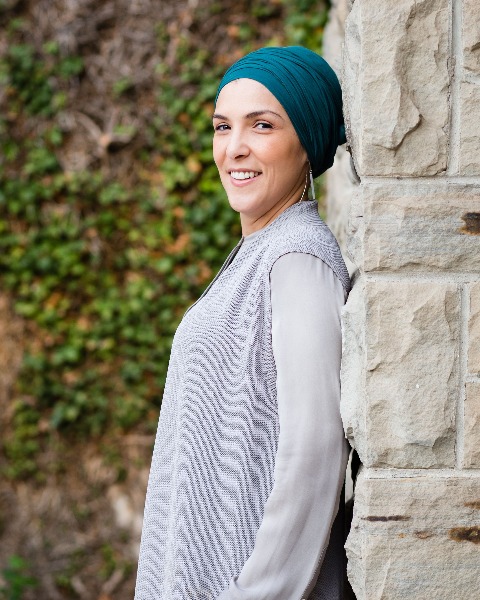Back
Health
Racism: A Global Health Problem with Implications in Your Hometown
Saturday, November 12, 2022
1:15 PM – 2:15 PM
Location: Capistrano B
Earn 1 CE

Andrea Murray-Lichtman, MSW, LCSW
Clinical Associate Professor
UNC-CH School of Social Work
Chapel Hill, North Carolina, United States
Siham Elkassem, PhD (c)
Instructor
King's University College - Western University
london, Ontario, Canada
Main Presenter(s)
Co-Presenter(s)
Overview: This workshop will utilize an anti-colonial and critical race consciousness lens to explore the global increase in racist acts and the implications for the health of racialized people. Participants will discuss meaningful and applicable strategies to move the social work profession to global racially just health practice, policy, and researchProposal text: Recent socio-political events perpetuating racial injustice and the ensuing worldwide protests marked a tipping point in the fight against racism in the United States, Canada, and across the globe. The increase of anti-Muslim racism (Elkassem et al., 2021), violence against indigenous communities in Canada (Anderson, 2016; Gunn & Brenda, 2019), and in the United States, incidents of anti-Black racism (Bailey et al., 2020; Egede & Walker, 2020), anti-Asian racism (Ho, 2020), separation of children and families at border detention facilities (Gros & Song, 2016), and increased global anti-immigration rhetoric (Canetti et al., 2016; Karki & Neupane, 2021), particularly during the pandemic (Newbold, 2020) indicate the seriousness of this issue for public health. The United Nations released a global agenda calling for transformative change for racial justice and equality.
Global health and social justice in social work is not a new domain for the profession. International social work began in the late 1920s, uniting countries to elevate global human rights and social justice (Healy, 2008). The International Association of Schools of Social Work (IASSW), the International Federation of Social Workers (IFSW), and the International Council on Social Welfare support global directives. Initiatives and reporting intensified with the recognition that racial injustice and discrimination against communities in one nation-state, directly and indirectly, impact other countries’ social well-being and overall global social health (Healy, 2008).
The COVID-19 pandemic and the disproportionate impact on the health of racialized communities worldwide emphasize the urgent need for social work to lead anti-racism practice in health care at the local level. Social work’s commitment to health equity is consequential for racialized communities. The current challenges of racism have implications for every aspect of social work. Social work must address racism as a global public health problem and healthcare as a human right. Sadly, the social work profession still struggles with substantive anti-racist action and has not reached the pinnacle of the code of ethics or social justice values that it asserts (Blackstock 2009; Chapman & Withers, 2019). Social work must re-evaluate our current strategies for social justice to include intentional anti-racist commitments to action. In some instances, social work has been caught and called out as contributing to racism (Detlaff, 2020).
This interactive workshop will engage attendees in discussing how racism and coloniality manifest globally and examine its impact on health through a critical race consciousness lens. Attendees will have the opportunity to connect the current crises to the effects on the health and well-being of racialized people and the inadequacy of our current approach to addressing these challenges. The presenters will provide an overview of challenges and opportunities for social work to equip future social workers to be anti-racist social workers and disrupt racist systems and ideologies in health care. Participants will share strategies to implement practices that allow them to think globally and act locally to promote anti-racist health research, education, and practice. Workshop participants will leave with new ideas to strengthen racial justice goals for healthcare and advance healthcare as a human right.
Global health and social justice in social work is not a new domain for the profession. International social work began in the late 1920s, uniting countries to elevate global human rights and social justice (Healy, 2008). The International Association of Schools of Social Work (IASSW), the International Federation of Social Workers (IFSW), and the International Council on Social Welfare support global directives. Initiatives and reporting intensified with the recognition that racial injustice and discrimination against communities in one nation-state, directly and indirectly, impact other countries’ social well-being and overall global social health (Healy, 2008).
The COVID-19 pandemic and the disproportionate impact on the health of racialized communities worldwide emphasize the urgent need for social work to lead anti-racism practice in health care at the local level. Social work’s commitment to health equity is consequential for racialized communities. The current challenges of racism have implications for every aspect of social work. Social work must address racism as a global public health problem and healthcare as a human right. Sadly, the social work profession still struggles with substantive anti-racist action and has not reached the pinnacle of the code of ethics or social justice values that it asserts (Blackstock 2009; Chapman & Withers, 2019). Social work must re-evaluate our current strategies for social justice to include intentional anti-racist commitments to action. In some instances, social work has been caught and called out as contributing to racism (Detlaff, 2020).
This interactive workshop will engage attendees in discussing how racism and coloniality manifest globally and examine its impact on health through a critical race consciousness lens. Attendees will have the opportunity to connect the current crises to the effects on the health and well-being of racialized people and the inadequacy of our current approach to addressing these challenges. The presenters will provide an overview of challenges and opportunities for social work to equip future social workers to be anti-racist social workers and disrupt racist systems and ideologies in health care. Participants will share strategies to implement practices that allow them to think globally and act locally to promote anti-racist health research, education, and practice. Workshop participants will leave with new ideas to strengthen racial justice goals for healthcare and advance healthcare as a human right.
Learning Objectives:
- Describe the contemporary context of global racism and its implications and impact on public health
- Utilize a transnational/global perspective that centers anti-racist and anti-colonial practice
- Evaluate and determine applicable strategies to integrate thinking globally about public health to enact racial justice practices locally
